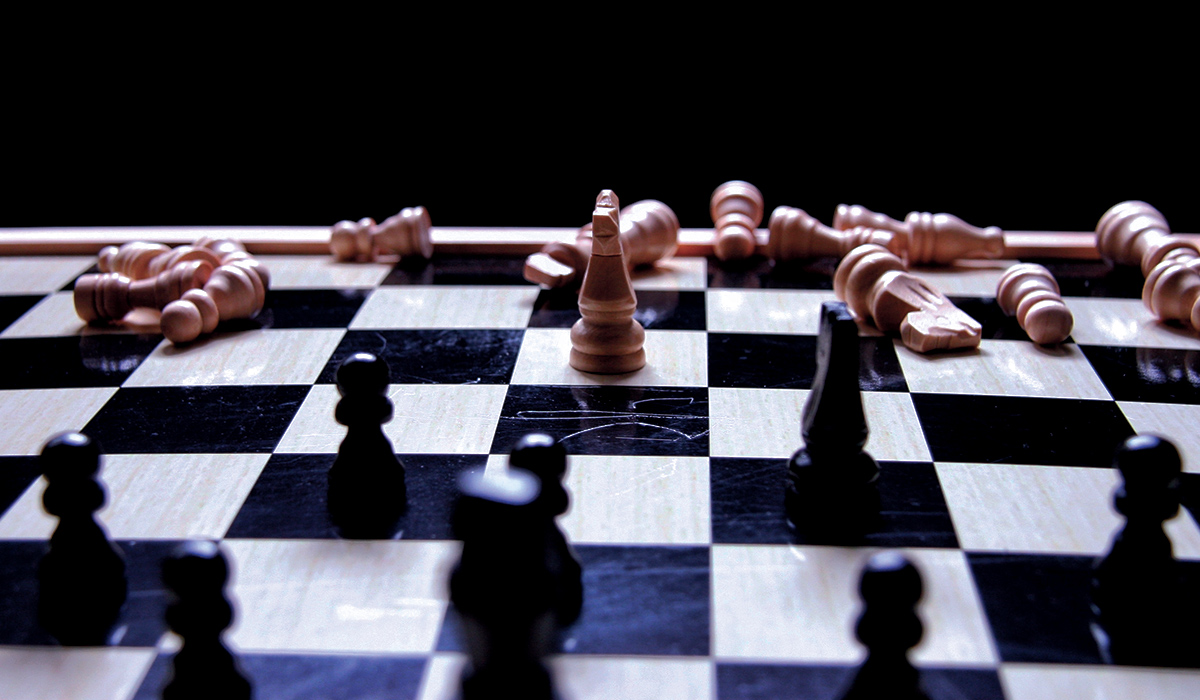Scapegoating, Part One

On this week’s podcast, Dan Allender dives into a new series about the origin and impact of scapegoating. This is a dynamic that can occur in systems of any size—including families, workplaces, and churches—and it is something that each of us have likely experienced both as the perpetrator and the victim.
Dan: “This is so much more than blame-shifting. […] We’re talking about the reality that we not only want to blame, we not only project, we not only identify somebody else as the fault, but we want them to suffer.”
Much of Dan’s approach to scapegoating is informed by the work of René Girard, a 20th century French writer. Girard argues that the dynamics of scapegoating emerge because of unaddressed mimetic desire—the idea that much our desire is based not on inherent value, but on the social power of particular objects and the cultural messages we receive about what it means to be happy, healthy, and successful. When these desires go unrecognized and unaddressed, they open the door to envy and the rage, resentment, and violence—ultimately, the bloodthirst—that envy fuels. So when your neighbor gets a fancy new car, it’s not enough to admire what they have or want the same for yourself; instead, envy fosters a desire to mar the object that you can’t have, and to harm the person who does have it.
Dan: “Our appetites, our desires, actually are an imitation of what we see other people valuing. […] And we don’t know what to do with our unrequited and unmet desires. As a result, we need a sacrifice to take away the bloodthirsty rage and envy that’s fouling a wide array of relationships.”
In ancient civilizations that practiced blood sacrifice, the ritual was established in an attempt to quell chaos, unease, or conflict. The person being sacrificed was often seen as the culprit of the collective chaos, but also as the one who would resolve it by their death. They were both villain and savior. Even though we no longer practice the literal rituals of blood sacrifice, Dan argues that these dynamics continue today when scapegoating is present. The person being scapegoated is admired for what they have to offer or how they might appease that which is unwell, but that admiration is mixed with envy and a desire to harm.
Dan: “We all need someone who’s at more than mere fault. More than just somebody to blame—somebody who indeed will take in our violence and resolve it—in some sense, heroically—on our behalf.”
Scapegoating allows somebody else to become the focus of our chaos, division, anxiety, and everything else that feels unwell, in a way that allows us to not have to examine the internal wars we all are facing. We get to maintain a collective sense of control without the need to address our own shame and fear and rage. This is painfully evident in many family systems, when one child becomes the one who will serve the family by taking in its chaos and conflict—the one who both embodies the family’s violence and soothes the family in the wake of that violence.
Dan: “This isn’t just interesting theory. This is very personal. […] We need scapegoats, and we choose them often unwittingly, often in a way that feels so deeply, deeply legitimate.”
Before we continue this conversation next week, Dan invites us to reflect on both our own experiences of being scapegoated and our tendencies to scapegoat others. Who are the people, groups, or institutions who seem to be the focus of all that is not well in your world? And when have you received that focus from others? These are deep, complex waters we’re wading into. Peace to you as you wrestle with these questions.
